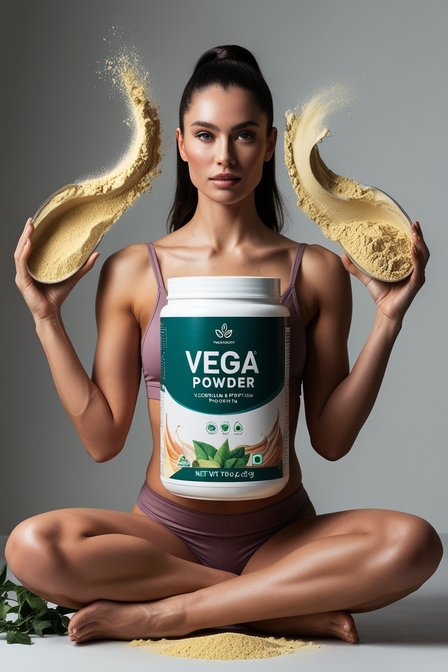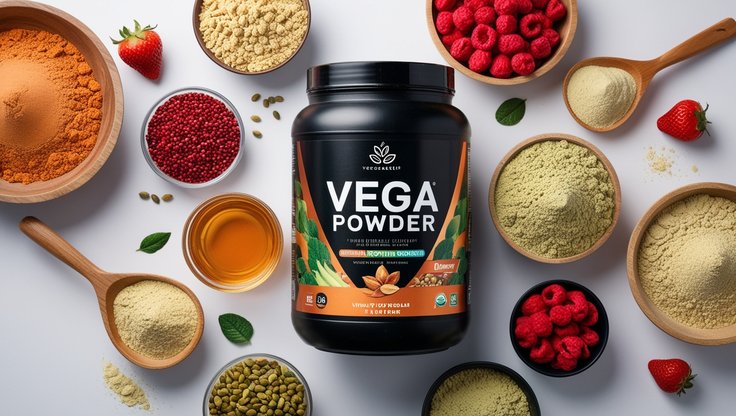Introduction to Vegan Protein-Rich Foods
As the popularity of veganism continues to rise, so does the awareness and importance of incorporating protein-rich foods into a plant-based diet. Protein is a vital nutrient essential for building and repairing tissues, producing enzymes and hormones, and maintaining overall health. While some people may believe that it’s challenging to get enough protein on a vegan diet, there are numerous plant-based sources that provide ample amounts of this nutrient. In this article, we will explore various vegan protein-rich foods, their benefits, and how to incorporate them into your daily meals.
The Importance of Protein in a Vegan Diet
Protein plays a crucial role in maintaining muscle mass, supporting metabolic processes, and ensuring the proper functioning of the body’s systems. For vegans, it’s important to diversify protein sources to ensure they get all the essential amino acids needed for optimal health. Unlike animal-based proteins, many plant-based proteins are incomplete, meaning they do not contain all nine essential amino acids. However, by consuming a variety of protein-rich plant foods, vegans can easily meet their nutritional needs.
Legumes: A Staple of Vegan Protein
Legumes, including beans, lentils, and peas, are among the best sources of plant-based protein. They are not only high in protein but also rich in fiber, vitamins, and minerals. Beans such as black beans, chickpeas, and kidney beans provide substantial protein per serving and are incredibly versatile in cooking. Lentils, available in red, green, and brown varieties, are quick to cook and can be used in soups, stews, salads, and even burgers. Peas, whether green peas or split peas, also contribute significantly to protein intake and can be added to a variety of dishes.
Nuts and Seeds: Small but Mighty
Nuts and seeds are another excellent source of vegan protein. Almonds, cashews, walnuts, and pistachios not only provide protein but also healthy fats and important nutrients like vitamin E and magnesium. Seeds such as chia seeds, flaxseeds, hemp seeds, and sunflower seeds are powerhouses of protein and omega-3 fatty acids. These can be sprinkled on salads, blended into smoothies, or used in baking to boost the protein content of meals.
Soy Products: Versatile and Nutritious
Soy products are perhaps the most well-known vegan protein sources. Tofu, tempeh, and edamame are all derived from soybeans and offer complete protein. Tofu, made from condensed soy milk, is highly versatile and can absorb flavors from spices and sauces, making it a favorite in many vegan dishes. Tempeh, made from fermented soybeans, has a firmer texture and a nutty flavor, perfect for stir-fries and sandwiches. Edamame, young green soybeans, can be enjoyed as a snack or added to salads and bowls.
Whole Grains: A Balanced Protein Source
Whole grains such as quinoa, brown rice, barley, and farro are not only excellent sources of complex carbohydrates but also provide a good amount of protein. Quinoa, in particular, stands out as it is a complete protein, containing all nine essential amino acids. These grains can be used as a base for salads, bowls, or as a side dish to enhance the protein content of meals.
Protein-Rich Vegetables
Certain vegetables also contribute significantly to daily protein intake. Vegetables like broccoli, spinach, kale, Brussels sprouts, and asparagus are not only rich in vitamins and minerals but also contain a notable amount of protein. These vegetables can be incorporated into meals through salads, stir-fries, and as side dishes to ensure a well-rounded diet.
Incorporating Vegan Protein into Daily Meals
Incorporating vegan protein into daily meals is easier than it may seem. Start your day with a protein-packed breakfast by including tofu scramble, chia seed pudding, or a smoothie with added hemp seeds or peanut butter. For lunch and dinner, create balanced meals with a combination of legumes, whole grains, and vegetables. For example, a quinoa salad with black beans, avocado, and mixed greens makes for a nutritious and protein-rich meal. Snacks can also be protein-boosted by including nuts, seeds, and edamame.
The Benefits of a Protein-Rich Vegan Diet
A protein-rich vegan diet offers numerous health benefits. It can help in building and maintaining muscle mass, which is especially important for those who engage in regular physical activity. Protein is also essential for a healthy immune system and can aid in weight management by promoting satiety and reducing overall calorie intake. Moreover, plant-based proteins come with additional nutrients such as fiber, vitamins, and antioxidants, which contribute to overall well-being and reduce the risk of chronic diseases.
Debunking Myths About Vegan Protein
There are several myths surrounding vegan protein, one of the most common being that it’s difficult to get enough protein on a vegan diet. However, with careful planning and a varied diet, vegans can easily meet their protein needs. Another myth is that plant-based proteins are inferior to animal proteins. While it’s true that many plant proteins are incomplete, combining different sources throughout the day ensures all essential amino acids are consumed.
Popular Vegan Protein Supplements
For those who struggle to meet their protein needs through food alone, vegan protein supplements can be a convenient option. Plant-based protein powders made from peas, rice, hemp, or a blend of different plant proteins are widely available. These can be added to smoothies, oatmeal, or baked goods to increase protein intake. It’s important to choose supplements that are free from artificial additives and sugars to ensure they align with a healthy diet.
Sustainable and Ethical Considerations
Choosing vegan protein sources not only benefits personal health but also has positive impacts on the environment and animal welfare. Plant-based proteins generally have a lower carbon footprint compared to animal-based proteins. Additionally, they require fewer resources such as water and land, making them a more sustainable choice. By opting for vegan proteins, individuals contribute to reducing animal suffering and promoting a more ethical food system.
Conclusion
Incorporating protein-rich foods into a vegan diet is both achievable and beneficial. By including a variety of legumes, nuts, seeds, soy products, whole grains, and protein-rich vegetables, vegans can easily meet their nutritional needs. The benefits of a protein-rich vegan diet extend beyond personal health to include environmental sustainability and ethical considerations. With careful planning and a diverse range of protein sources, a vegan diet can be both nutritious and fulfilling. Embrace the abundance of plant-based protein options available and enjoy the journey towards a healthier, more sustainable lifestyle.




